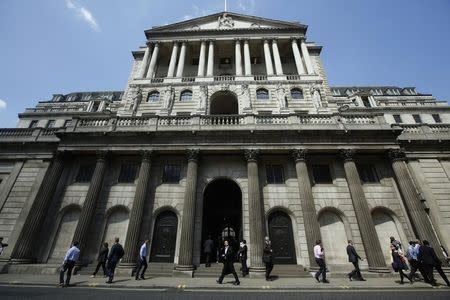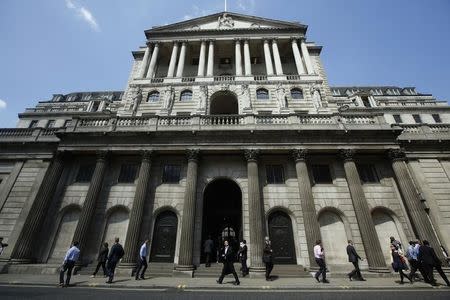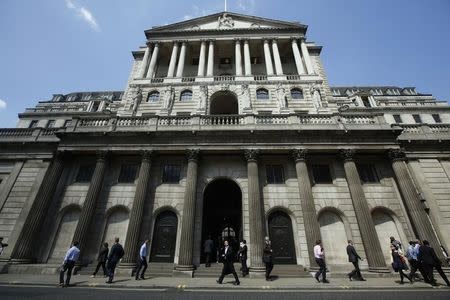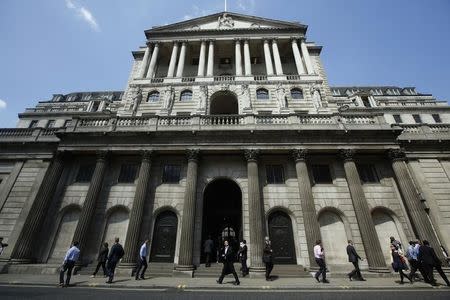Differences appear within majority of Bank of England rate-setters
By Andy Bruce and William Schomberg
LONDON (Reuters) - Differences over the risks to Britain's economy surfaced this month among the Bank of England officials who have voted to keep interest rates on hold, complicating the outlook for monetary policy.
Minutes of the Monetary Policy Committee's Nov. 5-6 meeting showed its members voted 7-2 for the fourth month in a row to maintain rates at their record low 0.5 percent, where they have been since early 2009 when the financial crisis was raging.
But there was a "material spread of views" among the majority, the minutes said, sending sterling up against the dollar and British government bond prices lower.
Some of the seven thought there was a risk that economic growth and inflation might undershoot forecasts and leave Britain's economy vulnerable to shocks if rates rose too soon.
But others emphasised a risk that spare capacity could be used up more quickly than the Bank's latest forecasts show.
"Individual members ascribed materially different probabilities to these risks," the minutes said.
The tone of the report suggested some top BoE officials were less sure of the need to keep interest rates on hold going into 2015 than had seemed the case last week, when the BoE said inflation might fall below 1 percent soon. Then, it forecast price growth would probably hit the Bank's 2 percent target in about three years' time.
BoE Governor Mark Carney suggested last week that markets were right to rule out an interest rate hike any time soon.
"Reading the BoE runes is hard at the moment. Last week's Inflation Report forecast was extremely dovish, but today's minutes were less so," said Berenberg's UK economist Rob Wood.
"Our view is that rate hikes are off the table until after the election, but the BoE will pull the trigger in June 2015."
Britons will vote in a general election in May.
Ian McCafferty and Martin Weale, who have voted for a rate hike since August, again said below-target inflation was largely the result of a stronger pound and lower raw materials prices.
Figures on Tuesday showed inflation edged up to 1.3 percent in October, still well below the Bank's 2 percent target. Wage growth exceeded inflation in September but only very slightly.
BoE Chief Economist Andy Haldane said this week he is watching "like a dove" for signs that expectations of very low inflation in Britain could become entrenched.
(Reporting by Andy Bruce; Editing by Catherine Evans)






